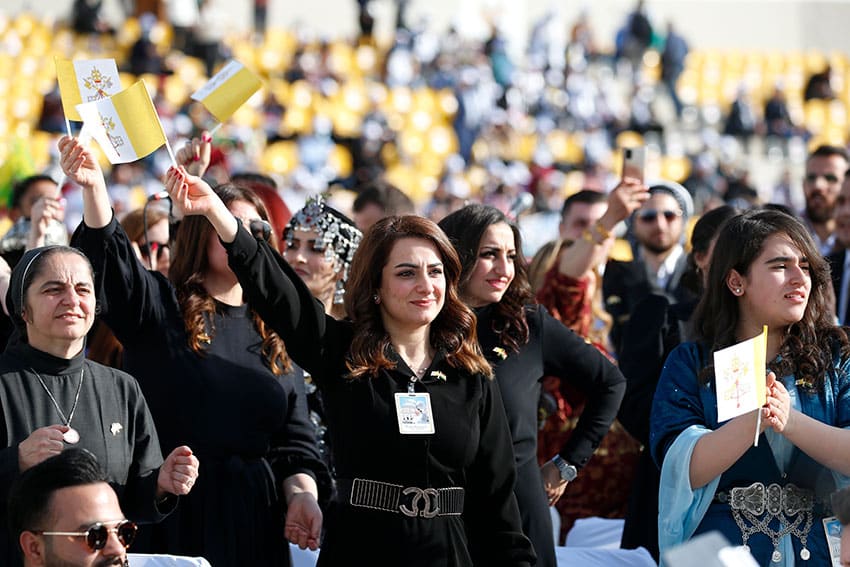
It is the morning of Day Four of the fifth plenary Council of Australia. Conscious that this is a deeply significant moment in the History of the Church, I am constantly struck by how messy it all is. We hear summaries and interventions in the morning, and in the afternoon we pray and discern in smaller groups. These are challenging conversations for all involved. I am particularly wary when an issue is forced rather than truly discerned. Listening to the Spirit must involve docility, a much forgotten virtue that involves, at least in part, believing in order to understand.
One of the forced issues is the idea that if we would just ordain women, then all our problems would be solved. According to such magical thinking, with a flick of the wand, anything in our Catholic culture that led to the abuses that we hope and pray are in the past, will never happen again. Instead of addressing the fact that abuses of power lead to abuses of people, the suggestion is that a whiff of feminine mystique will solve everything. Feminine genius is strangely missing from this conversation.
There are some things we certainly do not understand quite yet. One of these is how women already play a vital and apparently overlooked part in the life of the Church. The secular story that unless a woman can do absolutely everything that a man can do, she is not “equal” to men still provokes and seduces. Forgotten, unseen, and unheard, are those women who eschew oppressive narratives of power and embrace instead their vocation of femininity. How have we, as a Church, come to the point where we think that the answer to all of our problems is to ordain women?
The secular story that unless a woman can do absolutely everything that a man can do, she is not “equal” to men still provokes and seduces.
Maybe it is because the mystery of motherhood – biological and spiritual – seems to be missing in our conversations. There is much talk about the need for women to be present in all the roles of the Church. But there is not enough reflection on how Mary, the Mother of God (not just the biological mother of a human, but the Mother of the Second Person of the Trinity) did not need to become a priest. Nor did Mary Magdalene, whose humanity and femininity were by no means demeaned when Christ warned her “do not touch”.
It is hardly any surprise that Mary’s maternity is overlooked in all of this. Motherhood itself is constantly underestimated, excluded, and oppressed in our secular society. It is sobering to know that there is a real danger that as Church we very well might depart from our prophetic mission to give the full picture of our humanity to the world. Mothers and fathers together form families and communities that are at the life centre of the Church. I am privileged to know many mothers of families, as well as of religious communities. Without them, the Church would be less than she is, and this needs to be acknowledged far more by women and men working together.

One of the results of not appreciating the importance and richness of motherhood is that we do not support the domestic Church as much as we should. If we do not remedy this, then there is no future for the Church in Australia. It is sobering to know, too, that when as Catholics we neglect those who faithfully embrace their vocation as women who foster and nurture life (and have absolutely no problem with an ordained male ministry), we contribute to silencing women.
We need, as Church, not to steer away from what might at first seem like hard sayings from Christ. We are an apostolic Church. The apostles were, all twelve of them, men. If we have not have come to the full realization of the significance of this point then maybe it’s time we did – without resentment, and without buying into the lie that a woman is only fully human when she does what a man does.
